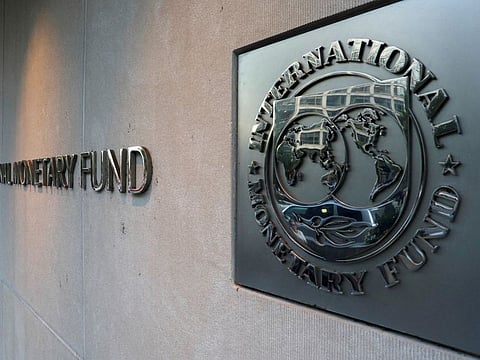IMF board approves $1 billion payout to Pakistan
Pakistan’s policy efforts have already delivered significant progress, the IMF said

The International Monetary Fund (IMF) approved the disbursement of around $1 billion to Pakistan on Friday after its executive board completed the first review of the country’s economic reform program supported by the extended fund facility (EFF) arrangement.
This brings the total disbursements under the arrangement to about $2.1 billion. In addition, the executive board approved the authorities’ request for an arrangement under the resilience and sustainability facility (RSF), with access of about $1.4 billion.
Enabling growth
Pakistan’s 37-month EFF was approved on September 25, 2024, and aims to build resilience and enable sustainable growth. Key priorities include entrenching macroeconomic sustainability through consistent implementation of sound macro policies, including rebuilding international reserve buffers and broadening of the tax base. They also include advancing reforms to strengthen competition and raise productivity and competitiveness. Improving public service provision and energy sector viability, as well as building climate resilience are among the other criteria.
“Pakistan’s policy efforts under the EFF have already delivered significant progress in stabilizing the economy and rebuilding confidence, amidst a challenging global environment,” the IMF said in a statement.
“Fiscal performance has been strong, with a primary surplus of 2 per cent of GDP achieved in the first half of FY25, keeping Pakistan on track to meet the end-FY25 target of 2.1 per cent of GDP. Inflation fell to a historic low of 0.3 per cent in April, and progress on disinflation and steadier domestic and external conditions, have allowed the State Bank of Pakistan to cut the policy rate by a total of 1100 bps since June 2025. Gross reserves stood at $10.3 billion at end-April, up from $9.4 billion in August 2024, and are projected to reach $13.9 billion by end-June 2025 and continue to be rebuilt over the medium term,” the statement added.
Reducing vulnerabilities
The RSF will support the authorities’ efforts to reduce vulnerabilities to natural disasters and to build economic and climate resilience. The authorities’ program prioritizes resilience to natural disasters and strengthening public investment processes at all levels of government; makes the use of scarce water resources more efficient, including through better pricing; strengthens coordination of natural disaster response and financing between federal and provincial governments, among others.
“Pakistan has made important progress in restoring macroeconomic stability despite a challenging environment. Since the approval of the EFF, the economy continues to recover, with inflation sharply lower and external buffers notably stronger. Risks to the outlook remain elevated, however, particularly from global economic policy uncertainty, rising geopolitical tensions, and persistent domestic vulnerabilities. Against this backdrop, the authorities need to maintain sound macroeconomic policies and accelerate reforms to safeguard the macroeconomic gains and underpin stronger and sustainable, private sector-led medium-term growth,” said Nigel Clarke, deputy managing director and chair.
Sign up for the Daily Briefing
Get the latest news and updates straight to your inbox


